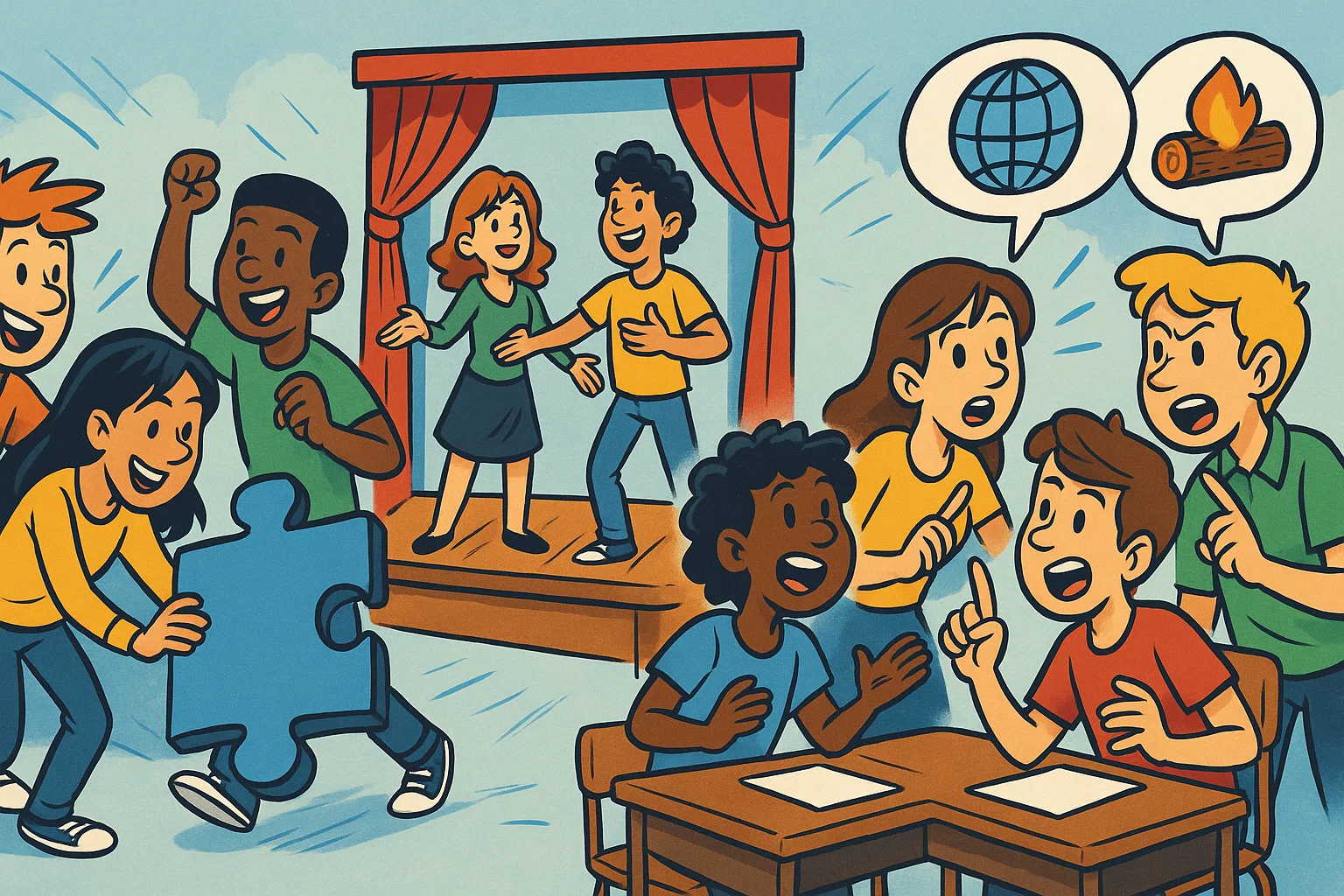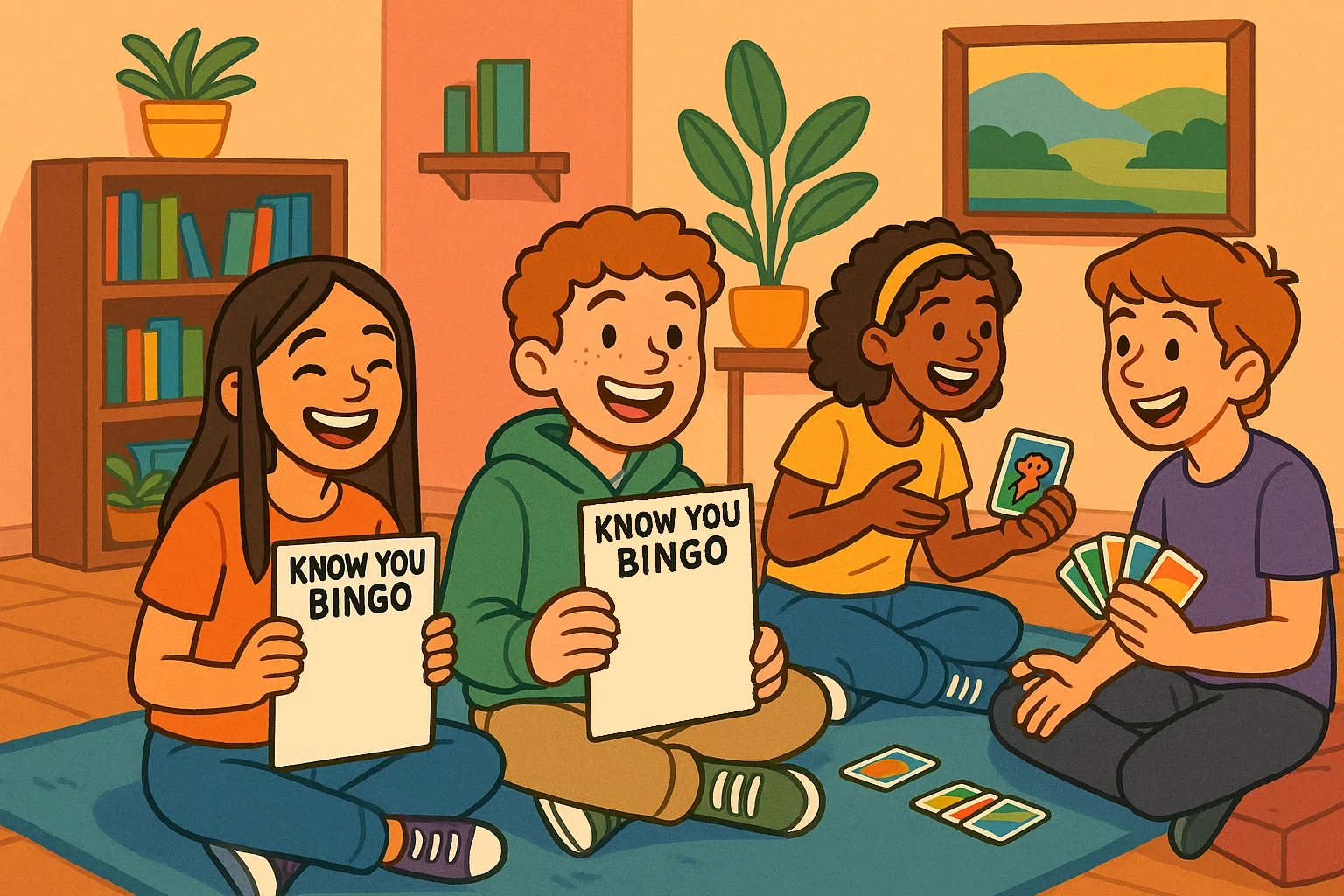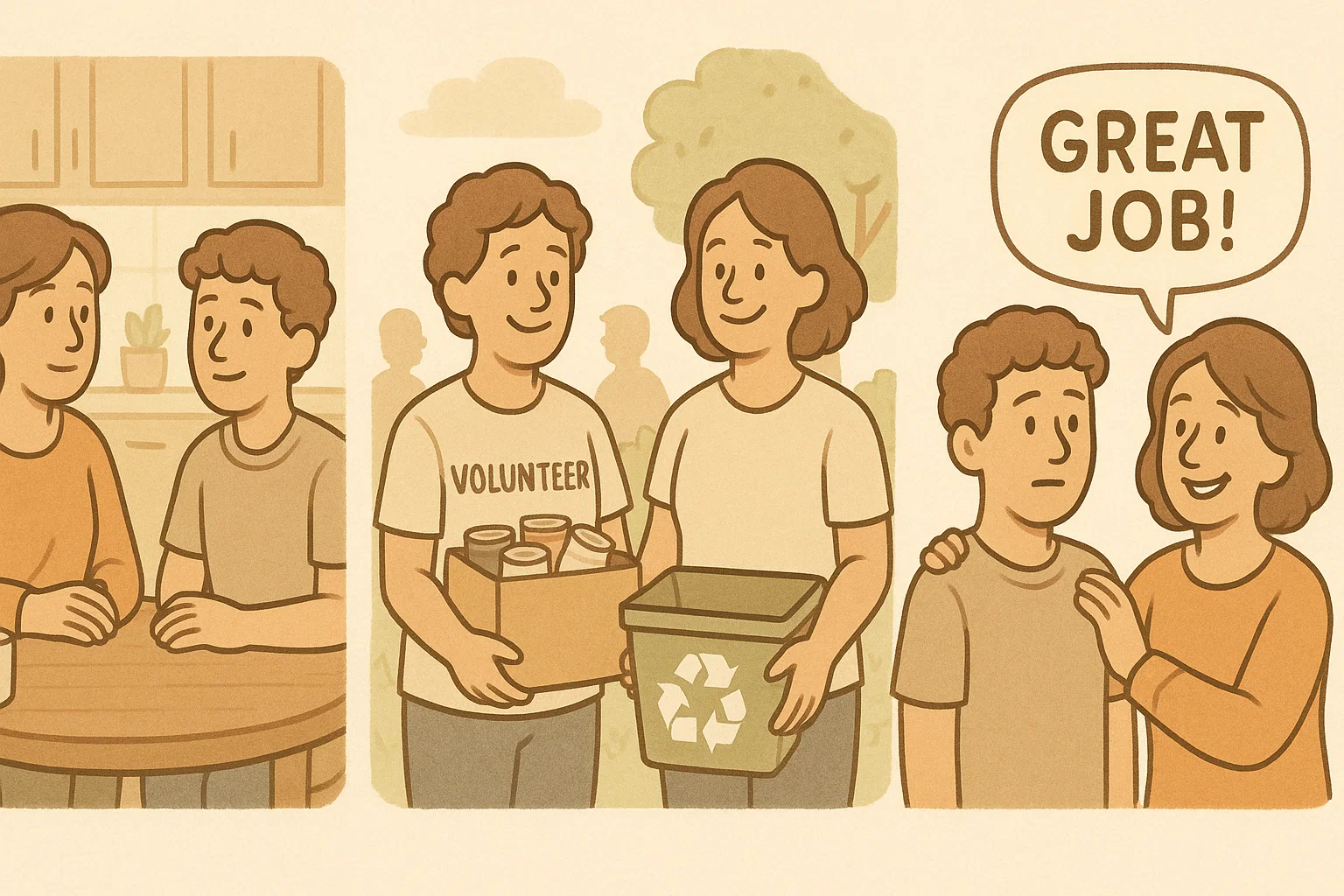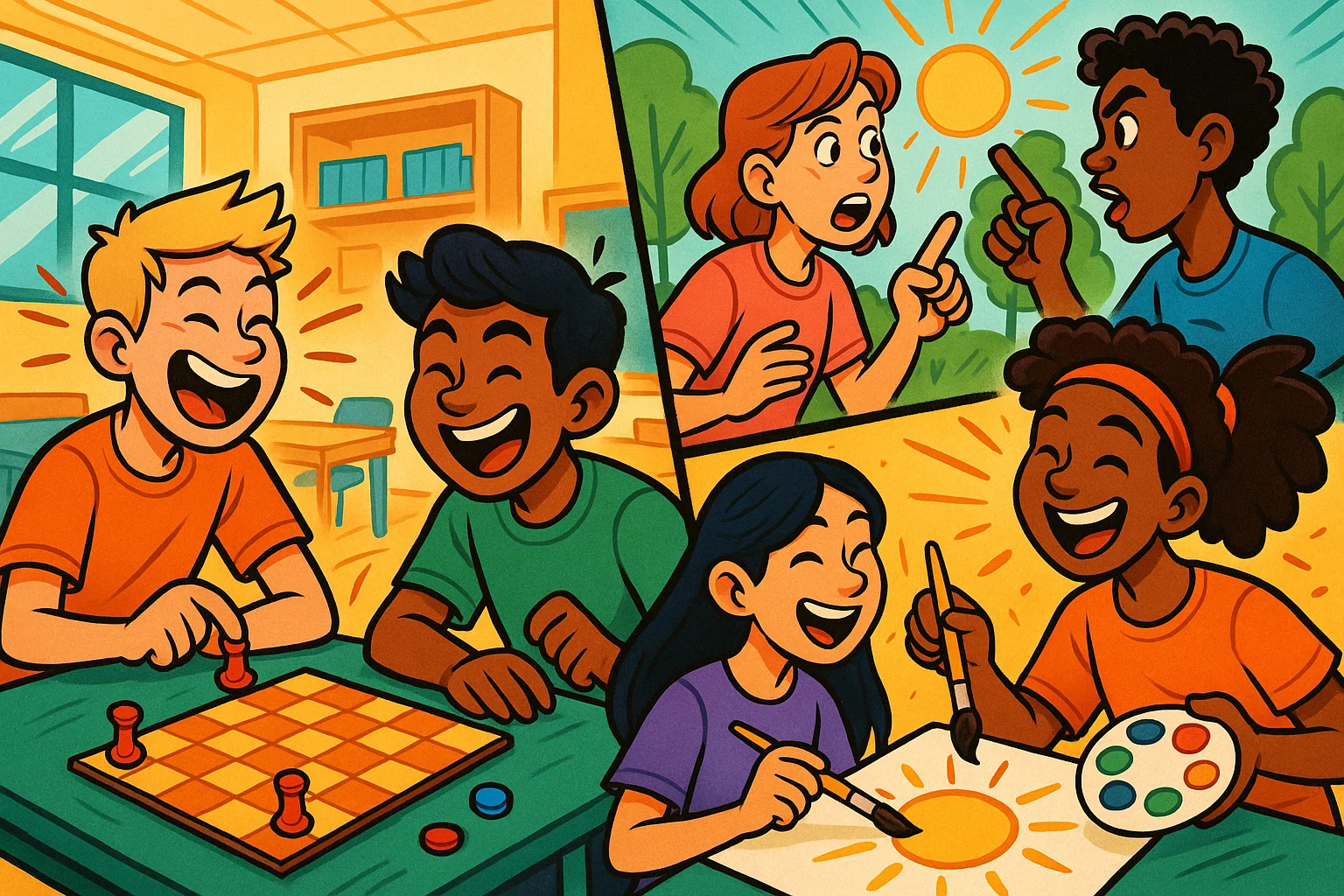The teenage years represent a critical period for social development, where young people learn to navigate complex relationships and social situations. This comprehensive guide explores proven activities and strategies to help teens build confidence in social situations while developing essential communication skills.
Modern high school students face unique challenges in developing social awareness and emotional intelligence. Digital communication often replaces face-to-face interactions, making it crucial for parents and educators to provide structured opportunities for teens to practice social skills in real-world settings.
Key Social Skills for Teens
Understanding which social skills are most important helps focus development efforts. Essential skills include effective communication, empathy, conflict resolution, and the ability to read social cues. These foundational abilities enable teens to connect with others and build healthy relationships throughout their lives.
Communication Skills 💬
Effective communication forms the cornerstone of all public interactions. Teens must develop both speaking and listening skills to engage meaningfully with peers and adults. Active listening involves giving full attention to the speaker, asking clarifying questions, and responding appropriately to what’s being shared.
Key components of strong communication skills include:
- Verbal expression: Clear articulation of thoughts and feelings
- Active listening: Focusing completely on the speaker without interrupting
- Nonverbal communication: Understanding body language and facial expressions
- Conversation starters: Initiating meaningful discussions with peers
- Taking turns: Respecting others’ opportunities to speak
Research from the BMC Psychology suggests that teens who practice assertive communication demonstrate higher self-esteem and better academic performance compared to their peers who struggle with expression.
Conflict Resolution
Teens inevitably encounter disagreements and conflicts in their social circles. Learning healthy approaches to conflict resolution helps them maintain friendships while standing up for their values. Effective conflict resolution involves identifying the root cause of disagreements, finding common ground, and working toward mutually beneficial solutions.
Essential conflict resolution skills include:
- Recognizing when emotions are escalating
- Using “I” statements to express feelings without blame
- Seeking to understand different perspectives
- Finding compromise solutions
- Knowing when to seek adult guidance
Empathy ❤️
Empathy allows teens to understand and share others’ emotions, fostering deeper connections and more supportive friendships. This skill helps young people respond appropriately to their peers’ needs while building trust and mutual respect.
Developing empathy involves:
- Reading emotional cues in others’ expressions and body language
- Asking questions to better understand others’ experiences
- Offering support during difficult times
- Celebrating others’ successes without jealousy
- Recognizing that everyone has unique perspectives and challenges
Studies indicate that teens with higher empathy levels report greater satisfaction in their relationships and demonstrate lower levels of aggressive behavior.
Assertiveness and Self-Expression
Healthy assertiveness helps teens express their needs and boundaries while respecting others’ rights. This skill enables young people to resist peer pressure and make decisions aligned with their values.
Components of assertive communication include:
- Speaking with confidence while remaining respectful
- Setting clear boundaries in relationships
- Expressing disagreement without attacking others
- Asking for help when needed
- Standing up for personal beliefs and values
Navigating Social Cues
Reading social cues accurately helps teens respond appropriately in different public situations. This skill involves interpreting both verbal and nonverbal signals to understand group dynamics and individual emotions.
Important social cues include:
- Facial expressions indicating comfort or discomfort
- Body language signaling openness or defensiveness
- Tone of voice conveying emotions beyond words
- Group energy and mood shifts
- Timing for appropriate contributions to conversations
Top Social Skills Activities for High School Students

Structured activities provide safe spaces for teens to practice social skills while having fun with their peers. These activities are designed to target specific skill areas while encouraging natural social interactions.
Group Activities and Team-Building
Team-building exercises help teens learn to work collaboratively while developing leadership skills and building trust with peers. These activities emphasize cooperation over competition, allowing participants to practice communication and problem-solving together.
| Activity | Skills Developed | Group Size |
| Trust Falls | Building trust, communication | 8-12 teens |
| Group Puzzle Solving | Teamwork, problem-solving | 4-6 teens |
| Community Service Projects | Empathy, leadership | 10-20 teens |
| Collaborative Art Projects | Creativity, cooperation | 6-10 teens |
Effective team-building activities create opportunities for teens to take turns leading discussions, practice active listening, and support one another in achieving common goals.
Role-Playing Scenarios
Role-playing provides a real-world context for practicing social skills without real-world consequences. These scenarios help teens rehearse challenging public situations before encountering them in their daily lives.
Common role-playing scenarios include:
- Job interviews for part-time employment
- Difficult conversations with friends
- Standing up to peer pressure
- Resolving conflicts with siblings or parents
- Meeting new people at social events
Research from the International Journal of Innovation and Scientific Research shows that teens participating in role-playing activities significantly improve social confidence and interpersonal skills.
Fun Social Skills Games
Games make learning enjoyable while reinforcing important public concepts. These activities encourage teens to practice specific skills repeatedly in low-pressure environments.
Popular social skills games include:
- “Know You Bingo”: Teens find classmates who match different characteristics, encouraging conversation and discovery
- “Two Truths and a Lie”: Participants practice both deception detection and self-disclosure
- “Human Knot”: Teams work together to untangle themselves, requiring communication and cooperation
- “Empathy Circle”: Teens share experiences and practice reflective listening
Creative and Collaborative Projects 🎨
Creative projects provide natural opportunities for social interaction while allowing teens to express themselves authentically. These activities often result in tangible outcomes that participants can take pride in creating together.
Examples of collaborative creative projects:
- Writing and performing short skits about public situations
- Creating group presentations on topics of mutual interest
- Organizing themed events for younger students
- Developing peer mentorship programs
- Producing videos or podcasts about teen experiences
Leadership and Problem-Solving Activities
Leadership opportunities help teens develop confidence while learning to motivate and guide others. These experiences teach young people how to balance assertiveness with collaboration.
Effective leadership activities include:
- Organizing volunteer events in the community
- Leading discussion groups about current events
- Mentoring younger students in academic subjects
- Planning public events for peer groups
- Participating in student government or clubs
Social Skills Games for Teens

Games provide structured ways for teens to practice social skills while enjoying themselves. Different types of games target specific skill areas and can be adapted for various group sizes and settings.
Icebreaker Games
Icebreakers help teens feel comfortable in new public situations while practicing conversation skills. These activities reduce social anxiety by providing structured ways to interact with unfamiliar peers.
Effective icebreaker games include:
- “Find Someone Who”: Teens mingle to find people who match specific criteria
- “Speed Friending”: Participants have brief conversations before rotating to new partners
- “Would You Rather”: Groups discuss preferences and reasoning behind choices
- “Story Building”: Each person adds one sentence to create a collaborative narrative
Board Games for Social Learning
Traditional board games teach patience, turn-taking, and gracious winning or losing. These games also provide natural conversation opportunities while maintaining engaging gameplay.
| Game Type | Social Skills Practiced | Age Appropriateness |
| Strategy Games | Planning, negotiation | 14+ years |
| Cooperative Games | Teamwork, communication | All ages |
| Storytelling Games | Creativity, active listening | 13+ years |
| Trivia Games | Knowledge sharing, confidence | All ages |
Card Games for Emotional Awareness
Specialized card games help teens identify and discuss emotions while learning healthy coping strategies. These games create safe spaces for sharing personal experiences and supporting one another.
Popular emotional awareness card games focus on:
- Identifying different emotions and their triggers
- Discussing coping strategies for difficult situations
- Sharing personal strengths and growth areas
- Practicing gratitude and positive thinking
- Exploring future goals and aspirations
Improv Games for Quick Thinking 🎭
Improvisational activities help teens think quickly while responding to unexpected social situations. These games build confidence in spontaneous interactions and encourage creative problem-solving.
Benefits of improv games include:
- Increased comfort with uncertainty
- Improved ability to adapt to changing social dynamics
- Enhanced creativity in communication
- Greater confidence in public speaking
- Better skills for handling awkward social moments
How to Help Teens Build Social Skills

Supporting teen public development requires intentional strategies from both parents and educators. Creating opportunities for practice while providing gentle guidance helps young people develop confidence in their interpersonal abilities.
Tips for Parents and Educators
Adults play crucial roles in facilitating teen social skill development. Effective support involves modeling good communication while creating opportunities for teens to practice new skills.
Strategies for supporting teen social development:
- Model effective communication in daily interactions
- Create opportunities for teens to interact with diverse peer groups
- Provide constructive feedback about public interactions
- Encourage participation in extracurricular activities
- Discuss social situations after they occur to reinforce learning
Integrating Social Skills Practice into Daily Life
Social skills development happens most effectively when integrated into regular routines rather than isolated to formal training sessions. Daily interactions provide countless opportunities for teens to practice and refine their interpersonal abilities.
Practical integration strategies include:
- Encouraging teens to order their own food at restaurants
- Having family discussions about current events
- Inviting friends over for group activities
- Participating in community volunteer opportunities
- Engaging in neighborhood activities and events
The Importance of Practice and Consistency
Like any skill, public abilities improve through regular practice and reinforcement. Consistent opportunities to interact with others help teens internalize new behaviors and gain confidence in their abilities.
Key principles for effective practice:
- Frequency matters: Regular interaction opportunities are more beneficial than occasional intensive sessions
- Variety helps: Experiencing different social contexts helps teens generalize their skills
- Gradual progression: Starting with comfortable situations and gradually increasing difficulty builds confidence
- Positive reinforcement: Celebrating improvements, no matter how small, encourages continued growth
Creating a Safe Space for Learning 🏠
Psychological safety enables teens to take public risks without fear of harsh judgment or ridicule. When young people feel secure, they’re more willing to try new approaches and learn from their mistakes.
Elements of safe learning environments include:
- Clear expectations for respectful behavior
- Consequences for bullying or mean-spirited comments
- Celebration of effort alongside achievement
- Opportunities for private feedback and reflection
- Recognition that social skill development is a process
Frequently Asked Questions about Teaching Social Skills To Teenagers
Understanding common concerns about teen public development helps parents and educators provide appropriate support and set realistic expectations.


